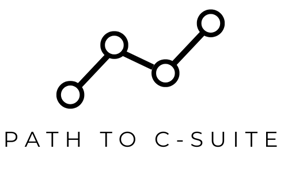Landing Your First Chief Product Officer (CPO) Job
1/25/20254 min read


Understanding the Role of a Chief Product Officer
The Chief Product Officer (CPO) holds a pivotal position within an organization, primarily responsible for the overall product strategy and vision. This executive title suggests a high level of influence and authority in both the product development lifecycle and the strategic direction of the company. A CPO is tasked with translating business objectives into actionable product initiatives, ensuring the successful alignment of product goals with broader organizational aims.
One of the primary responsibilities of a CPO is overseeing the entire product development process. This includes initial market research, product design, development, and subsequent market launch. A CPO collaborates closely with various departments such as marketing, sales, engineering, and customer support to ensure that the product meets customer needs and market demands. Such cross-functional teamwork is essential in creating a seamless experience for users and in fostering innovation.
The CPO also plays a critical role in shaping the company's product portfolio and prioritizing projects based on customer feedback and competitive analysis. This aspect of the role involves an ongoing assessment of the market landscape to inform product enhancements or new product introductions. As industries evolve, a CPO must continuously adapt strategies, making it crucial for individuals in this position to stay informed about emerging trends and technologies that may influence their products.
Moreover, the role of a Chief Product Officer is increasingly becoming more strategic as companies look for leaders who can not only manage product lines but also drive overall business growth. The emphasis on data-driven decision-making and customer-centric approaches enhances the CPO's role as a vital component of the executive team. With the dynamic nature of today's market, the responsibilities of a CPO continue to grow, making the position integral to achieving long-term organizational success.
Essential Skills for a CPO Position
Becoming a successful Chief Product Officer (CPO) necessitates a unique amalgamation of hard and soft skills, each critical for excelling in this multifaceted role. Among the hard skills, product management stands out as a cornerstone competency. A proficient CPO should possess a solid understanding of product life cycles, from conceptualization to launch, ensuring that products align with market demands and strategic objectives. Technical proficiency, including familiarity with various software development methodologies, is equally vital. This enables a CPO to collaborate effectively with engineering teams, fostering innovation and efficiency in product development.
Another essential hard skill is data analysis. In an era where data-driven decisions can significantly impact product success, a CPO must adeptly interpret analytics to inform product strategies. This involves identifying key performance indicators (KPIs) and making sense of user behavior patterns, which allows for continuous improvement and refinement of product offerings.
On the softer side, leadership capabilities are paramount. A CPO should inspire and cultivate talent within teams, creating an environment that encourages creativity and accountability. Effective leadership is closely tied to strong communication skills, which facilitate not only a collaborative work atmosphere but also the clear articulation of product vision and goals across various stakeholders.
Emotional intelligence can further enhance a CPO's effectiveness. The ability to understand and manage one's emotions, while also being attuned to team dynamics and customer feedback, empowers a CPO to navigate challenges and foster strong relationships. Evaluating one's current skill sets in these areas and identifying gaps can provide actionable insights for aspiring CPOs, ultimately enhancing their preparation for this critical leadership role.
Personal Attributes and Experience Needed
Landing a Chief Product Officer (CPO) position is a formidable challenge that necessitates a combination of personal attributes and relevant experiences. To navigate this path successfully, aspiring CPOs should cultivate adaptability, creativity, vision, and resilience. Adaptability is crucial, as the fast-paced nature of the product landscape requires leaders to pivot effectively in response to market trends and organizational shifts. A CPO who can adjust their approach in real-time contributes to sustainable growth and innovation within their teams.
Creativity is another key attribute, enabling CPOs to devise out-of-the-box solutions to complex problems. This creative thinking fosters a culture of experimentation, where new ideas can flourish and propel product development. Vision is essential as well; a successful CPO must be capable of long-term strategic planning that aligns with the company’s goals while motivating their team with a clear direction. Furthermore, resilience plays a pivotal role in overcoming setbacks, as the journey to a successful product often includes challenges and failures.
Experience in product management, marketing, and cross-team leadership further strengthens a candidate's profile. A robust background in product management provides insight into the intricacies of developing, launching, and iterating products, which is invaluable in a CPO role. Similarly, experience in marketing allows for a deeper understanding of customer needs and market positioning, critical for guiding product development efforts. Cross-team leadership experience is vital as well; it equips aspiring CPOs with the collaborative skills needed to unify diverse teams and drive cohesive strategies.
As candidates reflect on their own journeys, they should consider how their unique experiences and attributes can align with the demands of a CPO role and curate a career path that prepares them for this influential position.
The Importance of Continuous Learning and Adaptation
In today's rapidly changing landscape of product management and technology, continuous learning and adaptation have become essential components for aspiring and current Chief Product Officers (CPOs). The speed at which new technologies, methodologies, and consumer preferences evolve demands a proactive approach to professional development. By committing to lifelong learning, CPOs can enhance their skills and remain competitive in the market.
One effective method for staying abreast of industry trends is attending workshops and conferences. These events provide an invaluable opportunity for networking with industry leaders and peers, as well as gaining insights into the latest advancements in product management. Engaging with thought leaders and participating in dialogue about emerging trends can enrich one's understanding and inspire innovative approaches to product strategy.
Online courses also serve as a flexible option for continuous learning. Numerous platforms offer specialized programs focusing on both technical skills and soft skills vital for a CPO's role. Whether it’s data analytics, user experience design, or leadership training, these courses can be seamlessly integrated into a professional's schedule, allowing for ongoing development without significant disruption to daily responsibilities.
Additionally, immersion in professional communities, such as industry forums and local networking groups, proves beneficial for knowledge sharing. Participating in discussions, asking questions, and collaborating with others can foster a deeper understanding of the challenges and opportunities within the field. Many successful CPOs leverage these networks to stay informed about best practices and innovative strategies.
Ultimately, the journey to becoming a skilled CPO is ongoing. The most effective leaders are those who embrace change and view adaptation as an inherent part of their career trajectory. By prioritizing continuous learning and actively seeking opportunities for growth, aspiring CPOs can successfully navigate the intricacies of product management and lead their teams toward achieving organizational goals.
Contact & About
Newsletter
© 2025. All rights reserved.
Legal
About Us


